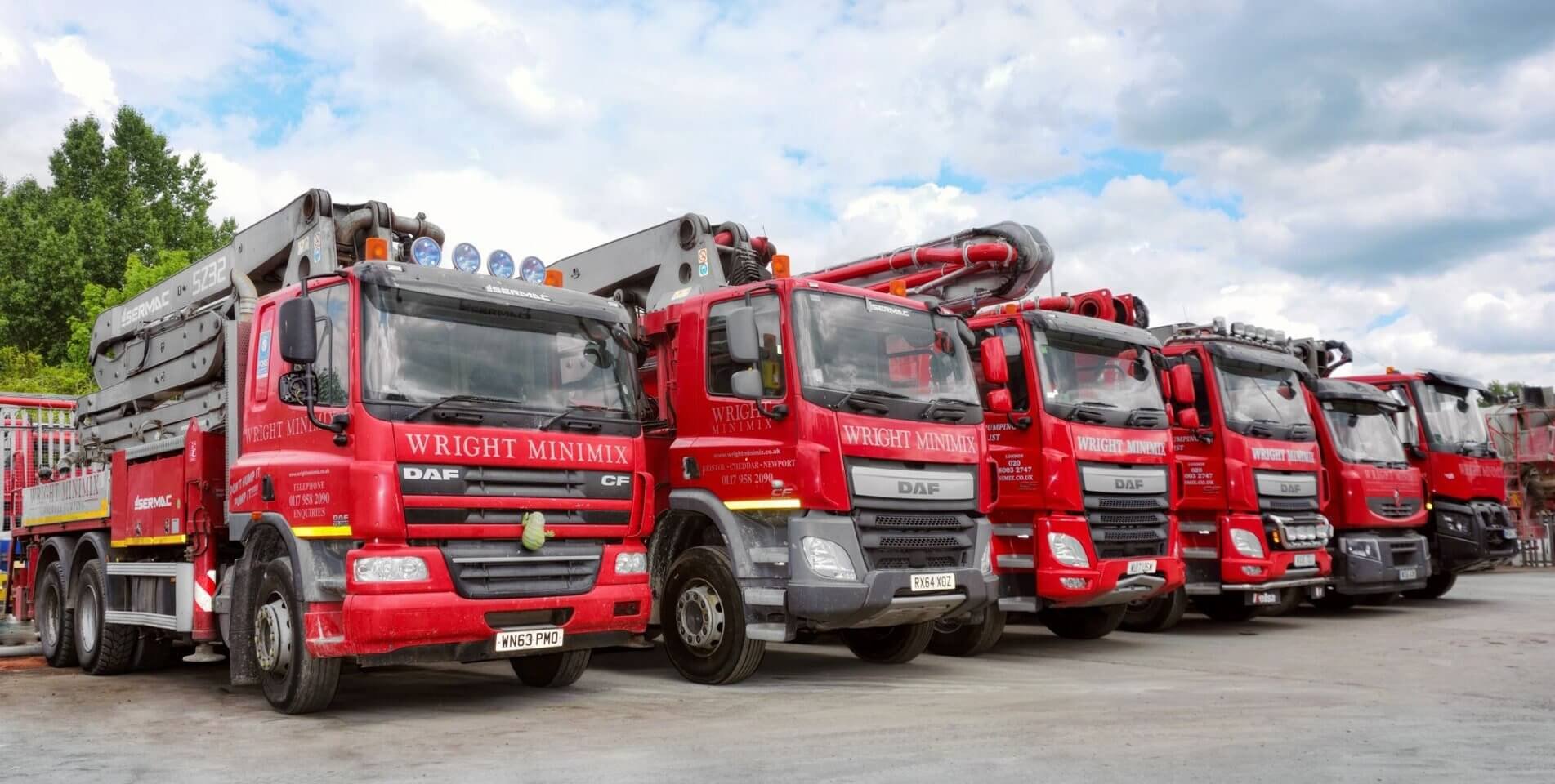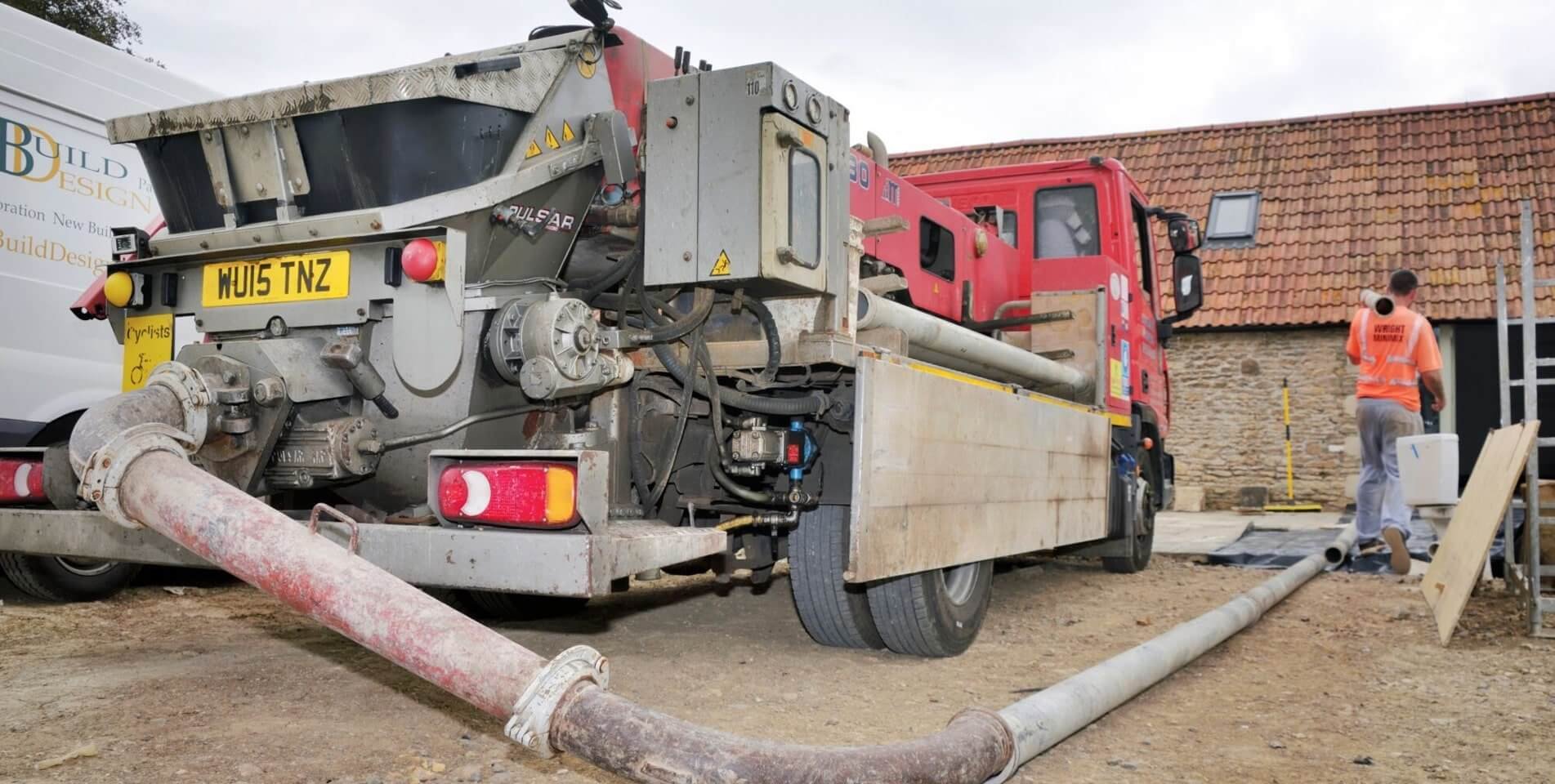The safe temperature for pouring concrete footings in the UK is typically 5°C and rising, with no overnight frost expected. Below this point, early strength development slows, and frost damage before curing becomes more likely.
Daytime conditions can appear suitable, only for temperatures to drop sharply overnight. Cold ground and falling night air temperatures are common in autumn and winter and can affect fresh footings before adequate strength has formed.
Before placing a pour, check air temperature, ground conditions and the overnight forecast. Taking these steps reduces risk and supports long-term footing performance.
Why Temperature Matters During Early Curing
Temperature directly affects strength gain. In colder conditions, concrete takes longer to reach usable strength. This can influence when blockwork begins, when loads are applied, and when inspections take place.
Lower temperatures do not always cause visible damage, but they extend the curing period. On projects with tight programmes, this can delay follow-on trades and impact scheduling.
The Health and Safety Executive (HSE) states that employers must assess environmental risks and apply suitable controls in cold working conditions. Planning for low temperatures is part of responsible site management [1].
Temperature management applies to both extremes. We explain the risks of high temperatures in our blog, tips for laying concrete mixes in hot weather, where we note that accelerated curing can affect finish and surface quality.
The 5 Degree Rule Used on UK Sites
On most UK sites, 5°C and rising is treated as the practical minimum for pouring concrete footings. Below this point, strength gain slows, and exposure to overnight frost becomes more likely.
BS EN 206 sets requirements for concrete specification, production, and conformity, including controls for temperature during delivery and placement. In the UK, it works alongside BS 8500, which provides national provisions and guidance for site practice [2].
Using concrete supplied under recognised third-party certification schemes helps ensure production controls meet these standards.
Choosing the right mix remains important in cold conditions, and to help, we have outlined suitable options in our guide to types of concrete mix and their uses.
Air Temperature, Ground Conditions & Frost Risk
When assessing concrete pouring temperatures, look beyond the daytime forecast. Footings are often poured early in a build, so delays can affect programme continuity.
The Office for National Statistics (ONS) reported total UK construction output of £236,208 million in 2025, which just goes to show the scale and time sensitivity of the sector [3]. With such stakes in mind, reliable weather checks support consistent decision-making.
Before pouring, review:
- Air temperature at placement.
- Ground temperature at formation level.
- Overnight frost forecast.
Ground can retain cold after a prolonged spell and draw heat from fresh concrete. Do not pour onto frozen ground, as thawing may lead to movement beneath the footing.
Overnight frost is often the biggest risk in the first 24 to 48 hours. The Met Office advises using localised forecasts and site-specific weather data to reduce downtime due to weather [4].
We cover these considerations in more detail in our blog, pouring your concrete in winter, which outlines practical steps for managing cold-weather pours.
How to Protect Concrete Footings in Cold Weather
When temperatures approach 5°C, protection helps retain heat generated during curing and reduces frost exposure.
Common measures include:
- Insulating blankets applied immediately after finishing.
- Timber or board coverings to reduce heat loss.
- Temporary sheeting to limit wind chill.
- Reviewing forecasts before removing protection.
Protection should remain in place until the concrete has developed sufficient strength. In colder months, curing periods are typically longer than in summer. Further details on timing and curing methods are covered in our blog, how to cure concrete, which explains best practices across different weather conditions.
Where placement time needs to be controlled, concrete pumping can support efficient delivery and reduce on-site exposure. We supply concrete pumping services across the South West.
When to Postpone & When to Call Us
Cold-weather decisions depend on more than a single temperature reading. Site exposure, wind chill, soil stability and build sequencing all influence whether a pour should proceed.
Delay a pour if:
- Temperatures are unstable or falling rapidly.
- Frost is forecast within hours of placement.
- The ground has recently thawed and may shift.
Short postponements often protect overall programme certainty. Wright Readymix supplies reliable ready mix concrete suitable for domestic and commercial projects across the South West, backed by practical advice and hands-on industry experience.
Call 0117 958 2090 or get in touch to discuss your footing pour, confirm the right mix, and plan delivery around the forecast.
External Sources
[1] The Health and Safety Executive (HSE), "employers must assess environmental risks and apply suitable controls in cold working conditions”: https://www.hse.gov.uk/temperature/employer/index.htm
[2] BSI.Knowledge, “BS EN 206 sets requirements for concrete specification, production, and conformity, including controls for temperature during delivery and placement”: https://knowledge.bsigroup.com/products/concrete-specification-performance-production-and-conformity
[3] The Office for National Statistics (ONS), reported total UK construction output of £236,208 million in 2025”: https://www.ons.gov.uk/businessindustryandtrade/constructionindustry/bulletins/constructionoutputingreatbritain/december2025newordersandconstructionoutputpriceindicesoctobertodecember2025
[4] The Met Office, “advises using localised forecasts and site-specific weather data to reduce downtime due to weather”: https://www.metoffice.gov.uk/binaries/content/assets/metofficegovuk/pdf/business/sectors/construction-catalogue-guide-v2.pdf


